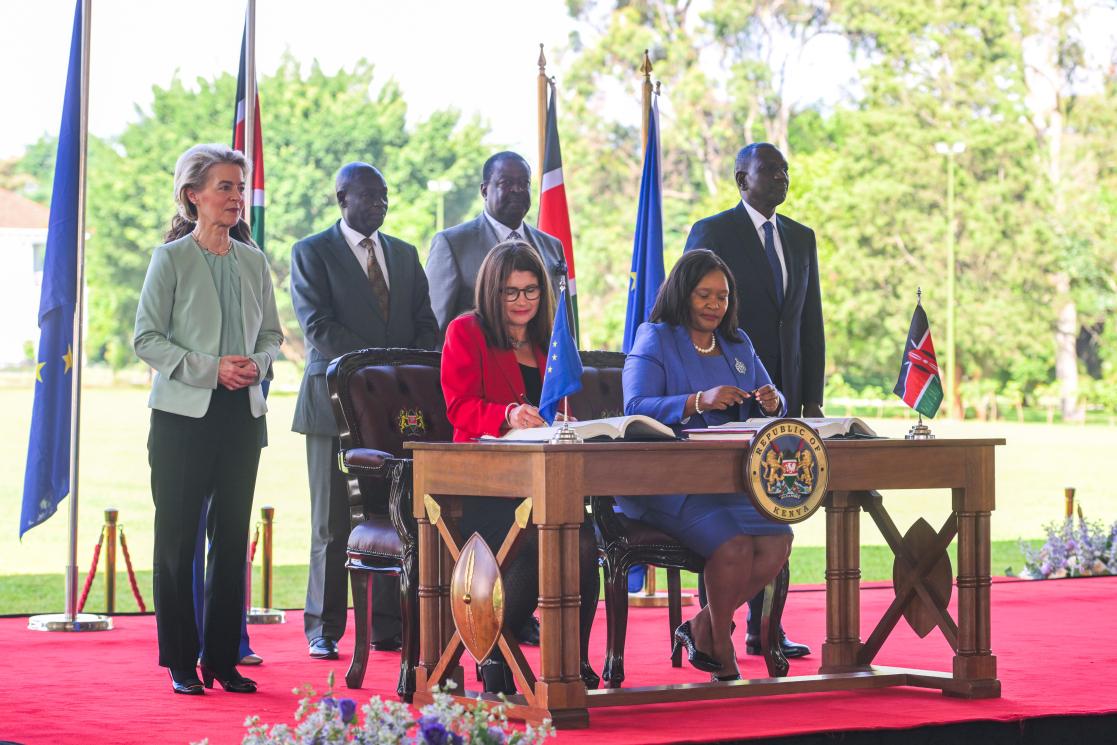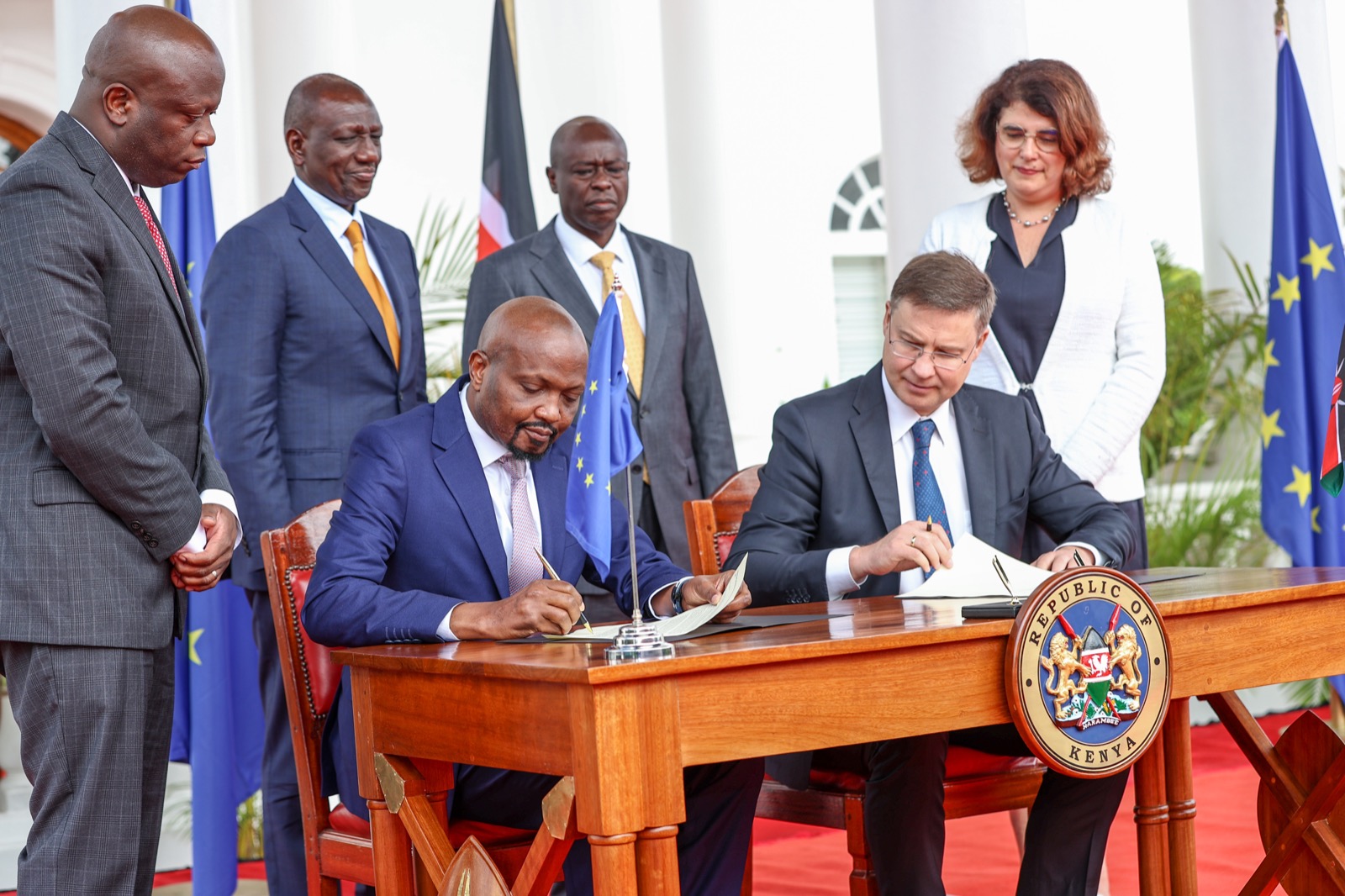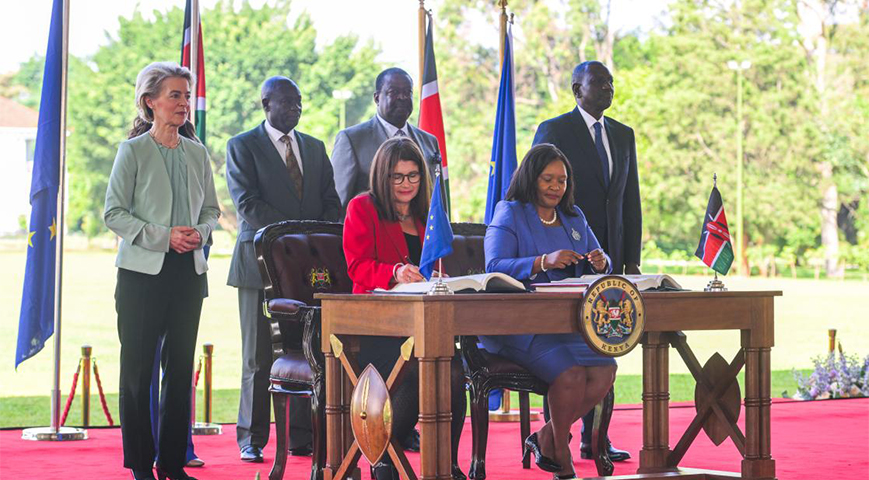Kenya and the European Union moved closer to signing an Economic Partnership Agreement on Monday, granting the East African nation duty-free access to the bloc for its exports.
After seven months of negotiations, both parties agreed to a draft agreement in June. The EU is one of Kenya's most important export markets.
Last week, the European Union Council approved the agreement. It will now be presented to both sides' parliaments for ratification before entering into force.
"Today's agreement heralds a new dawn where Kenyan goods gain immediate duty- and quota-free access to the European market," Rebecca Miano, Kenya's trade minister, said before signing the agreement at a ceremony in Nairobi.

"Over time, European goods will also gain preferential access to the Kenyan market."
Kenya exports 21% of its total to the EU, including tea, coffee, flowers, fruits, and vegetables. The EU sells its machinery, pharmaceuticals, and other chemicals.
According to EU and Kenya government data, bilateral trade between the two stood at 3.3 billion euros in 2022, making it the East African nation's second-largest trade partner.
Kenya signed an initial trade agreement with the EU in 2016, along with its partners in the then-six-member East African Community trade bloc, but the majority of EAC countries did not sign it and thus did not fully take effect.
According to Kenyan President William Ruto, the EAC has since grown to eight member countries, all of which are welcome to join the new agreement.

"This agreement that we are signing today leaves the door open, and I say, wide open, for our EAC partners to join," President William Ruto said during the signing ceremony.
While the other EAC members are classified as least developed countries, their exports could continue to be granted access even without the agreement; Kenya is a middle-income country and thus requires a stand-alone arrangement.
"We encourage other Eastern African countries to join," said EU Commission President Ursula von der Leyen.









